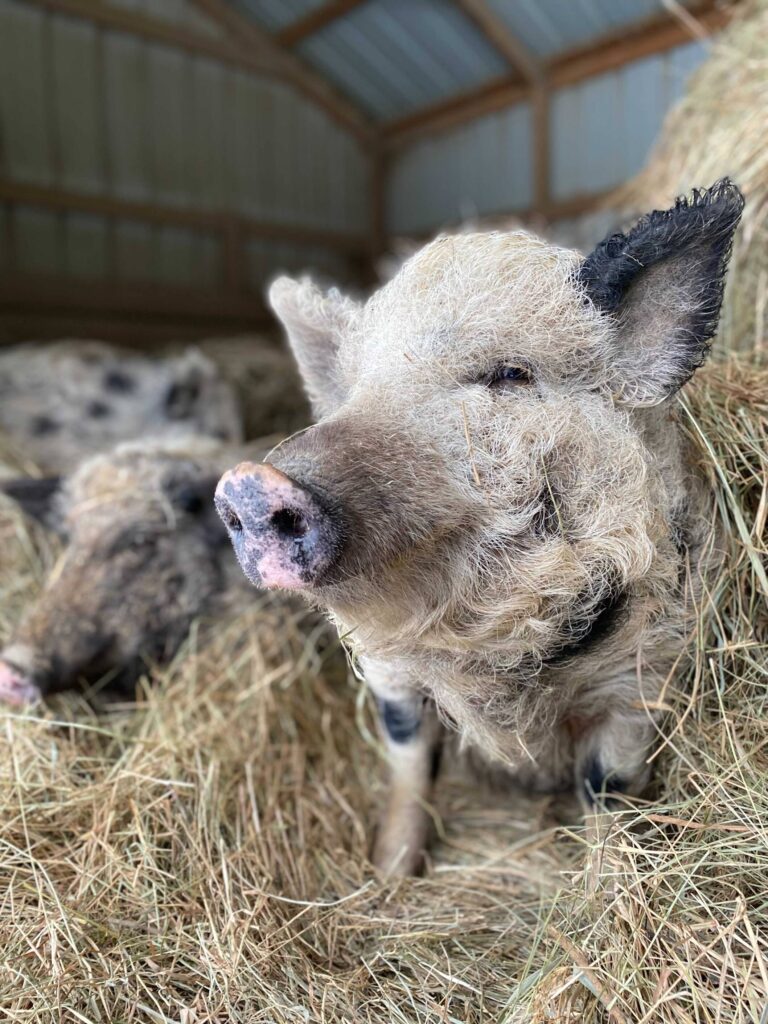Ripley was part of the SECOND litter born to Momma Memphis here under the former administration. She is one of the MANY spotted little Fuzzy Ferals who call OMI their home. Ripley’s favorite maternal figure was Sissy, who was one of our enormous Hampshire ladies. She loves her siblings, but Sissy was her best pal. While we don’t fully understand why she chooses to live in a different neighborhood from her parents and spent most of her time with an older female three times her size, it’s a testament to the actual conscious choices that animals make for themselves when given the option. Ripley can be distinguished by her adorable mismatched ears…one black and one white. She’s a shy feral, but not unfriendly. She’s just timid.
The Fuzzy Ferals
The Fuzzy Ferals started with just four pigs, but grew to a herd of eighteen in just four short months. Momma Memphis arrived from the Memphis Animal Shelter in October 2018 under the care of the former administration of this property. She was accompanied by Martin and Coretta, both fully grown, and baby King. Shortly after arriving, she gave birth to seven spotted babies, many of whom resembled Martin. Four months later, because King was neutered too late, she gave birth to seven more fuzzy little potatoes who all resembled King.
Prey animals like pigs are extremely efficient at procreation because the survival of their species depends on it. Females can become pregnant as soon as they deliver, and they can have three litters of up to fifteen babies a year. Males are fertile very quickly, which means caregivers need to exercise extreme caution when they have an unaltered male on the property.
The Fuzzy Ferals were spayed once OMI took over the Tennessee property, which further improved their chances for a long and healthy life. Female pigs are highly susceptible to reproductive abnormalities if left unspayed, which can significantly impact the quality and length of their lives. Not only are the Fuzzy Ferals living in safety with their family, but they have now received full Sanctuary Babe status with the addition of an appropriate level of species-specific healthcare.

